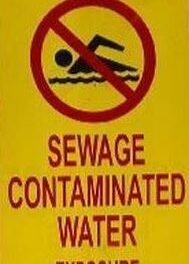SAN DIEGO–San Diego County’s Vector Control today will begin to drop solid, granular larvicide on 48 local waterways for the fifth time this year to kill mosquito larvae.
Vector Control will use helicopters to treat the rivers, streams and other waterways in a single day, weather permitting. The program treats the waterways roughly once a month from April or May through October to help control mosquito populations and protect the public from mosquito-borne illnesses like West Nile virus.
The solid larvicide the county uses is harmless to people and pets but deadly to the mosquito larvae that eat it. The waterways stretch from Chula Vista in the south to Fallbrook in the north and from Oceanside in the west to Lakeside in the east, totaling just over 1,000 acres.
In addition to the monthly larvicide drops, County Vector Control treats another 1,400 potential mosquito-breeding sources across the county by hand during the course of the year. It also gives out free mosquito-eating fish to the public, tracks down and treats neglected green swimming pools, tests dead birds for West Nile virus and monitors cases of other potential mosquito-borne illnesses, including Zika virus, chikungunya and dengue.
West Nile virus has become a part of the county’s environment since it first arrived here in 2003. In 2016, 22 San Diego County residents tested positive for the virus, and two people died.
So far this year, no one has tested positive for the virus and just four dead birds and two mosquito batches have tested positive. In 2016 at this point in the summer, 151 dead birds had tested positive and 62 mosquito batches had tested positive.
However, County Vector Control officials said people still need to be aware and to protect themselves from West Nile virus as we are now approaching what’s typically peak mosquito season. Officials said the public should follow the County’s “Prevent, Protect, Report” guidelines.
Dump out or remove any item inside or outside of homes that can hold water, such as plant saucers, rain gutters, buckets, garbage cans, toys, old tires, and wheelbarrows. Mosquito fish, available for free by contacting the Vector Control Program, may be used to control mosquito breeding in backyard water sources such as unused swimming pools, ponds, fountains and horse troughs.
Protect yourself from mosquito-borne illnesses by wearing long sleeves and pants or use repellent when outdoors. Use insect repellent that contains DEET, picaridin, oil of lemon eucalyptus, or IR3535. Make sure screens on windows and doors are in good condition and secured to keep insects out.
Report increased mosquito activity, or neglected, green swimming pools and other mosquito-breeding sources, as well as dead birds — dead crows, ravens, jays, hawks and owls — to environmental health’s Vector Control Program by calling (858) 694-2888, or emailing vector@sdcounty.ca.gov.


